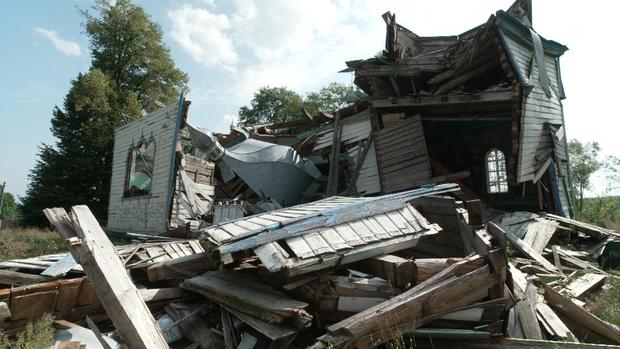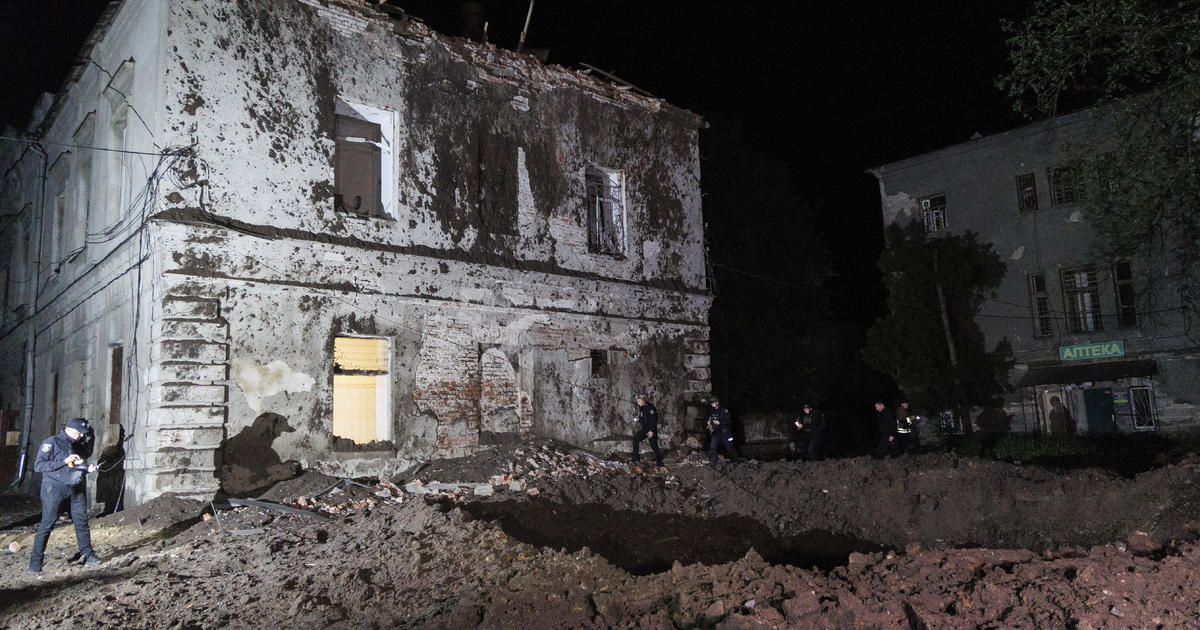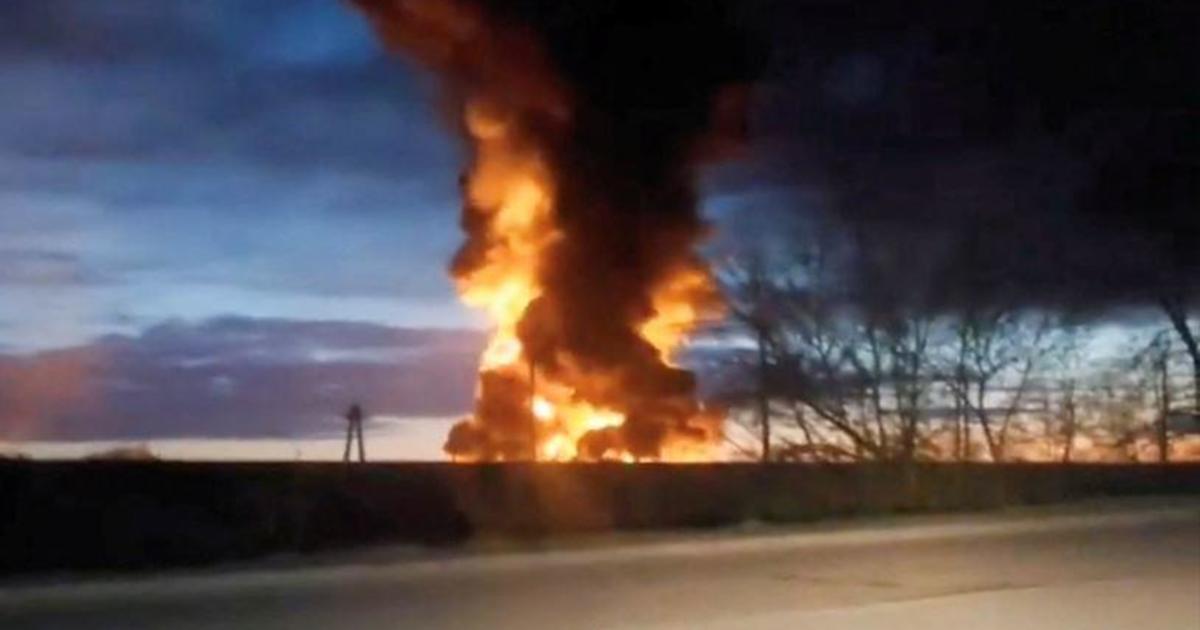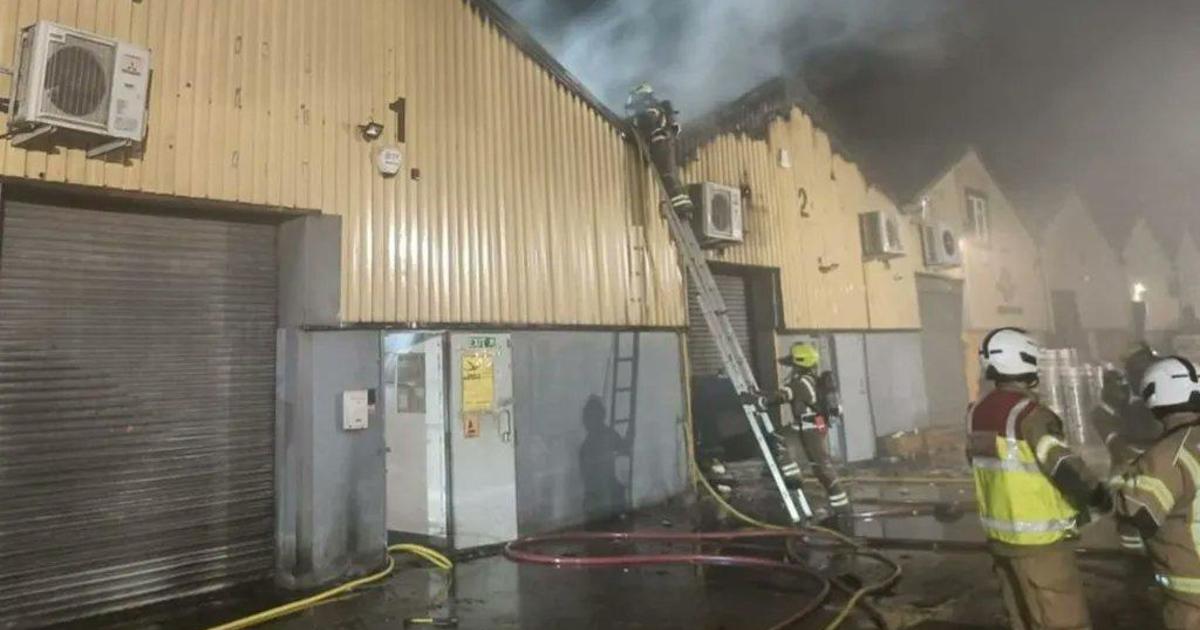Ukrainian investigators preserve heritage as Russia targets its cultural legacy
A small church in a Ukrainian village survived two world wars, communism and a revolution, but it fell to Russian shelling last March.
The Church of the Nativity in Viazivka, a few hours northwest of Kyiv, was one of hundreds of churches, museums, libraries and monuments that have been bombed, burned or shelled since Russia invaded Ukraine. It was on Ukraine's Heritage List.
Ihor Poshyvailo, who co-founded Ukraine's Heritage Emergency Response Initiative, a sort of cultural SWAT team, said there's no mistaking Russia's intentions.
"The cultural legacy, cultural heritage, this is what makes us rich and what we have to protect and pass to future generations," Poshyvailo said. "That's why I can see that it's one of the front lines of this war."
Why is Russia focused on destroying Ukraine's culture?
Poshyvailo and others say they believe the strategy comes straight from the Kremlin. For years, Russian President Vladimir Putin has publicly dismissed Ukraine's right to exist at all.
"We are all Russians," Putin has said.
There was no fighting anywhere nearby when Russians shelled the church in Viazivka. Poshyvailo said he believes it was destroyed so that Russia could send a message to Ukraine: "We are strong. You should be afraid of us. And we will do what we want to do."
Ukrainian investigators see Russia's acts as a campaign of cultural genocide to destroy Ukraine's history and identity as a nation. They see Russia's invasion as not just a land war, but as a heritage war. Poshyvailo sees it as a war against the Ukrainian identity.
"This is a war against our historical memory," Poshyvailo said.
What has Russia destroyed in Ukraine?
The church in Viazivka is one of 700 churches in Ukraine that have been hit since the invasion began, Poshyvailo said. Some were collateral damage, but many were not.
Poshyvailo co-founded the Heritage Emergency Response Initiative, a team that travels to damaged sites, interviews witnesses and saves what they can.
Hundreds of museums, libraries and monuments have also been bombed, burned or shelled. Last February, Russians razed a small folk museum near Kyiv. Nearby buildings were left untouched.
Farther east, a Russian rocket destroyed the Skovoroda museum in the Kharkiv region. Locals carried out the only surviving statue like a wounded patient.
Ukraine has accused Russia of looting more than 30 museums, calling it the biggest art theft since the Nazis in World War II. In Kherson, Russian soldiers cut paintings from frames, dragged out priceless antiques and cleaned out more than 10,000 works of art from the Kherson Museum.
Russians also targeted ancient gold ornaments at the Melitopol Museum of Local History. Museum workers hastily hid the treasures in cardboard boxes in the museum's dank, unfinished basement. Russians headed to the museum and threatened to shoot the locks off the door.
CCTV footage from March 10, 2022 shows the Russians harassing employees, searching the museum and stashing what they took in white cloth sacks. That morning, they left without finding the gold. Undeterred, a group of soldiers turned up at the door of museum director Leila IIbrahimova and kidnapped her.
"There were eight of them," IIbrahimova said in Ukrainian. "They were wearing balaclavas and carried machine guns. One soldier did all the talking. They turned my house upside down, then they put a bag on my head and put me in a car."
She said the Russians interrogated her about the museum, but she refused to cooperate. After several hours they let her go. Her name later surfaced on a Russian execution list. IIbrahimova fled and is now in hiding.
The Russians kept searching for the gold at the Melitopol Museum of Local History. In the end, they found it. Nearly 200 ancient gold artifacts – worth untold millions – are now missing.
What are Ukrainians doing to protect their heritage
Milena Chorna, head of international exhibits at the National War Museum in Kyiv, helped set up a museum crisis hotline for workers trapped behind Russian lines.
They were soon swamped with calls for help: sending money for Russian bribes, devising escape routes, hiding paintings and sometimes just to talk.
Many workers actually moved into their museums to help guard the collections, even as the bombs fell, Chorna said. During the siege of Chernihiv last year, one worker moved into a museum with her 8-year-old daughter. Like in many parts of the city, there was no electricity, no water, no heat. Volunteers trying to deliver a generator to the museum worker were killed.
"She stayed," Chorna said. "She stayed until the liberation, yes. And now, she is in the army."
During "60 Minutes'" visit to the Holy Dormition Cathedral in Kyiv, a 3D laser scanner was used to meticulously capture every architectural detail of the church so that if disaster strikes, the church can be rebuilt to exact specifications.
Is Russia's destruction of cultural heritage in Ukraine a war crime?
Last month, a United Nations report found new evidence that Russia had committed war crimes in Ukraine with deliberate killings and the widespread use of torture.
The deliberate destruction of cultural property during armed conflict is also a war crime, but one that's often difficult to prove. In Ukraine, criminal lawyer Vitali Tytych said the Russians have flipped the law on its head.
Tytych leads a new unit of the Ukrainian military investigating Russia's targeting of heritage sites.
"The Russians keep saying they are evacuating these artifacts to safeguard them during the fighting, and they will return them when the war is over," Tytych said in Ukrainian. "That is a lie and we are ready to prove it."
There have been only two convictions for cultural war crimes since the law was passed in 1954. Tytych said he's worried about Ukraine's case.
"The International treaties to prevent war crimes have not proven effective," he said in Ukrainian. "Nor has the international criminal court, but that's all we've got."






